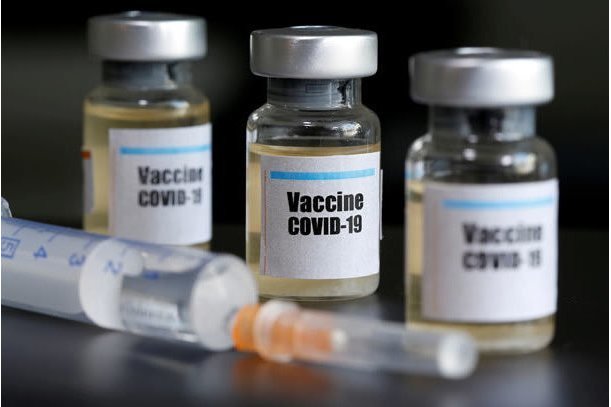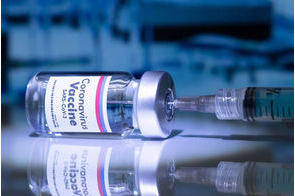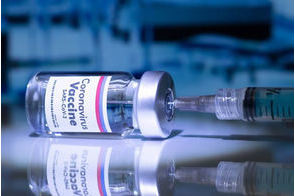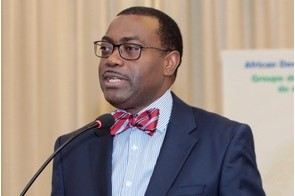Latest News
WHO, UNICEF call for collaboration to expand access to COVID-19 vaccines

News Highlight
More than three quarters of the vaccinations administered so far are in just 10 countries that account for 60 per cent of global GDP.
The World Health Organisation and the United Nations Children’s Fund (UNICEF) said on Wednesday that almost 130 countries, with 2.5 billion people, were yet to administer a single dose of COVID-19 vaccine.
Since early December 2020 when the mass vaccination programme to protect people from the deadly coronavirus disease started globally, more than 152 million doses of COVID-19 vaccines have been administered as of February 11, 2021, according to data collected by Bloomberg. However, there are concerns that the majority of countries, mostly in the developing world, are being left behind in vaccine access.
In a joint statement released yesterday by WHO’s Director-General, Tedros Adhanom Ghebreyesus, and UNICEF’s Executive Director, Henrietta Fore; the heads of the UN agencies said more than three quarters of the vaccinations administered so far are in just 10 countries that account for 60 per cent of global GDP. The joint statement, titled, “In the COVID-19 vaccine race, we either win together or lose together,” calls on global leaders to adopt a new strategy to ensure equitable access to COVID-19 vaccines to all countries.
“Today, UNICEF and WHO – partners for more than 70 years – call on leaders to look beyond their borders and employ a vaccine strategy that can actually end the pandemic and limit variants,” Ghebreyesus and Fore said.
The two leaders called the lack of access to COVID-19 to many developing countries a “self-defeating strategy” that would cost lives and livelihoods, give the virus further opportunity to mutate and evade vaccines and would undermine global economic recovery. To end the pandemic, a large share of the world's population needs to be immune to the virus. Experts say the safest way to achieve this is with a vaccine.
WHO is supporting COVAX, the global initiative that aims to provide COVID-19 to billions of people, especially in low-income countries. The UN agencies identified a three-pronged strategy for supplying all countries with COVID-19 vaccines in the first 100 days of 2021.
The first part of the strategy involves having governments that have vaccinated their own health workers and populations at highest risk of severe disease to share vaccines through COVAX to enable other countries to do the same. The heads of UNICEF and WHO said health workers who have been on the frontlines of the pandemic should be protected first so they can protect others.
The second aspect of the strategy entails adequate funding of the Access to COVID-19 Tools (ACT) Accelerator, the global collaboration to accelerate COVID-19 diagnostics, treatment, vaccines and strengthen health systems. COVAX is the vaccine pillar of the ACT Accelerator. WHO says the accelerator faces a $27.2 billion funding gap. If fully funded, Ghebreyesus and Fore said the ACT Accelerator could return up to $166 for every dollar invested.
To expand access to vaccines, the strategy also calls on drug manufacturers to allocate the limited vaccine supply equitably; share safety, efficacy and manufacturing data as a priority with WHO for regulatory and policy review; step up and maximise production; and transfer technology to other manufacturers who can help scale the global supply.
Bloomberg’s data show the United States is ahead in the number of COVID-19 vaccine shots given so far. The country has administered 46 million vaccine doses as of today. China has administered 40.5 million doses, followed by United Kingdom with 13.6 million shots.
“COVID-19 has shown that our fates are inextricably linked,” the two UN leaders said in their statement. “Whether we win or lose, we will do so together.”
Related News
Latest Blogs
- The Museum of West African Art saga
- The complexity and complication of Nigeria’s insecurity
- Between bold is wise and wise is bold
- Prospects of port community system in Nigeria’s maritime sector
- Constitutionalism must anchor discipline in Nigerian Armed Forces
Most Popular News
- NDIC pledges support towards financial system stability
- Artificial intelligence can help to reduce youth unemployment in Africa – ...
- ChatGPT is now the most-downloaded app – report
- Green economy to surpass $7 trillion in annual value by 2030 – WEF
- Global trade to hit record $35 trillion despite slowing momentum
- CBN licences 82 bureaux de change under revised guidelines






